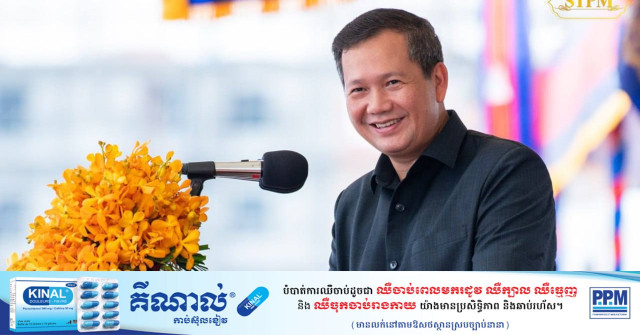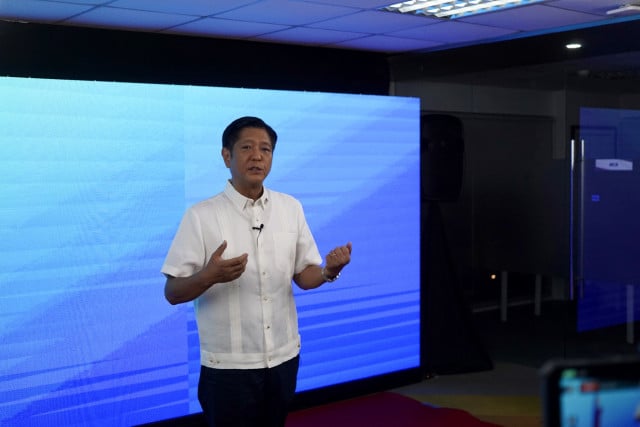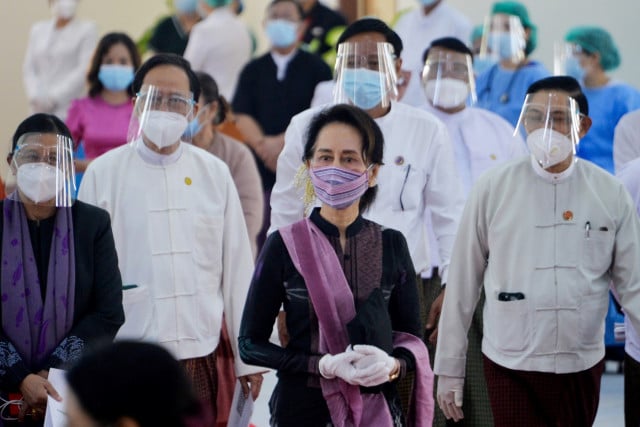“Live together,” PM Responds to Garment Minimum Wage Critics

- By Teng Yalirozy
- October 3, 2023 11:54 AM
PHNOM PENH – Raising the minimum wage for garment workers to $204 is for the mutual benefit of workers and investors, said Prime Minister Hun Manet, while the government is trying to attract foreign investments to Cambodia by creating a competitive market.
After six meetings between workers and companies’ unions and the government, the proposal from the Ministry of Labour and Vocational Training to raise the minimum wage to $202 was approved by 46 of the 51 voters.
The minimum wage was then increased by an additional $2 by the prime minister on Sept. 28, setting it to $204 for 2024. In 2023, the minimum wage for garment and footwear workers stood at $200.
However, the decision was deemed insufficient to combat inflation by unionists, who considered the current economic situation would have required a more substantial increase.
Some workers have called for a minimum wage of $215, while some unionists have suggested that it be raised between $300 and $500 in the long term.
“Please understand! $4 might be little but will help us live all together,” PM Hun Manet said on Oct. 3 during a gathering with the workers in Phnom Penh’s Meanchey district.
He said employers were “forced” to accept the additional $2 for the benefits of the workers amid the global economic crisis.
Hun Manet argued that creating a competitive and favorable environment for investors and employers was important, otherwise, factories might relocate to other countries with lower minimum wages.
He raised the example of Laos, where garment workers are paid only $82 a month, and India where the minimum wage stands at approximately $65, while workers in Sri Lanka are paid roughly $39 a month.
In Vietnam, Cambodia’s closest competitor in garment and textile production, the minimum wage varies from $133 to $191 a month, depending on the region.
“The government’s commitment is to raise the wages of workers every year, no matter how small or large the amount is. This is the policy of the government, which has taken into account the workers from the previous mandate, led by Samdech Techo Hun Sen,” the newly-appointed PM said.
“Live together: The workers get the benefits, the factories are still here,” he said.
Currently, countries in the region, especially countries that compete with Cambodia to export garment products, do not have to raise wages for workers due to the global economic crisis, he added. However, Cambodia will continue to increase workers' wages.
“Letting the private sector afloat is to create jobs for the Cambodian people,” he said.
Hun Manet also called on landlords not to raise rents for workers and requested Electricite du Cambodge (EDC) to continue to consider lowering the electricity price for workers.
Ex-PM Hun Sen on Oct. 2 said that wages indeed increased a little bit, but it was better than losing a job [because of factory relocation] that would completely wipe away the income.
Seek More Investments
During his trip to the United States for the 78th session of the United Nations General Assembly, Hun Manet was criticized for not meeting Tesla’s CEO Elon Musk while Thai Prime Minister Srettha Thavisin did.
However, he said he met with 58 U.S. companies, such as airplane producer Boeing or the second-largest payment-processing corporation Mastercard, to talk about investment opportunities in Cambodia.
Hun Manet, with his pentagonal strategy, stresses the importance of trade and seeks to attract more foreign investments as he believes that the private sector plays a vital role in contributing to Cambodia's development.















